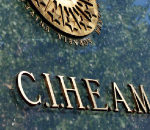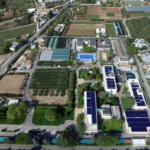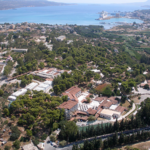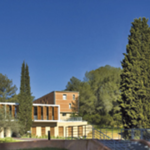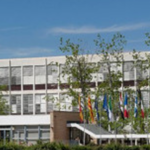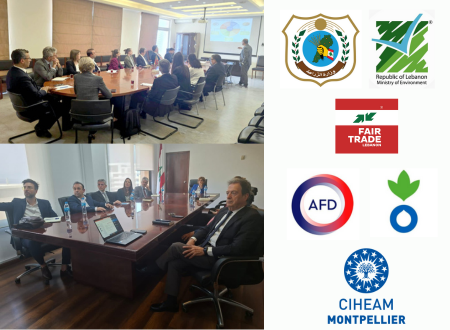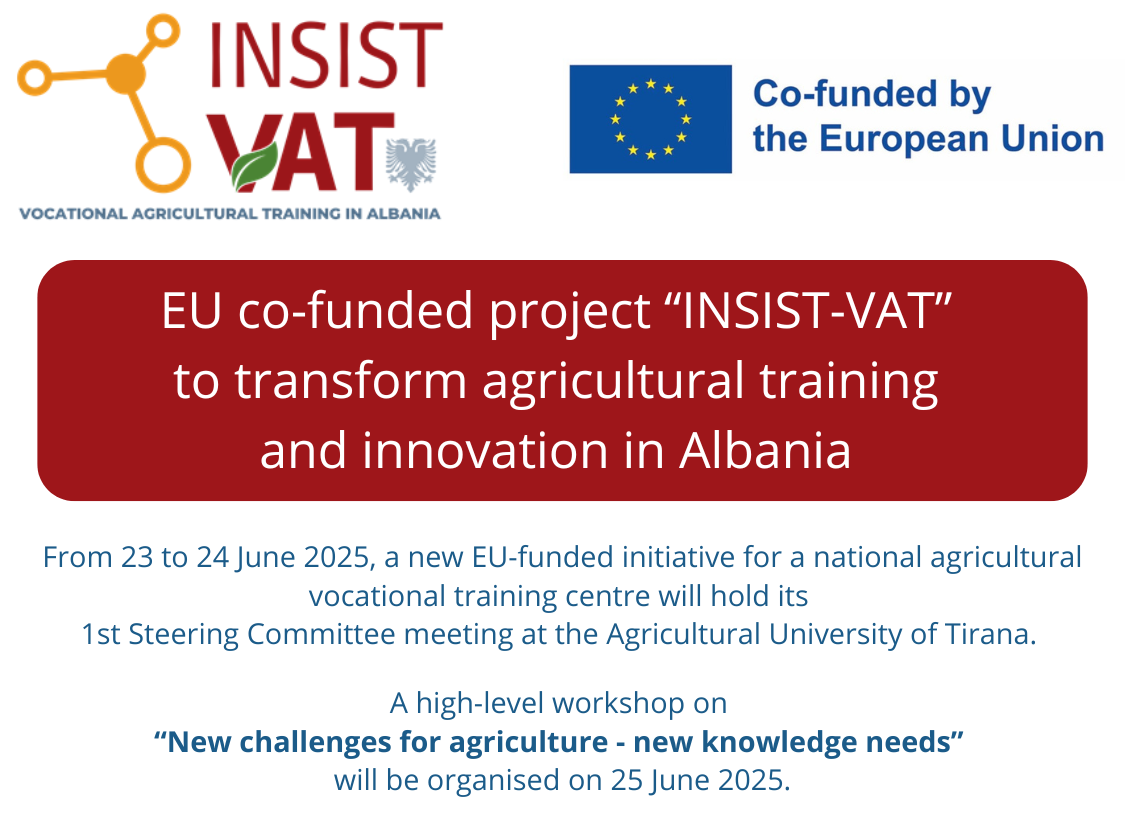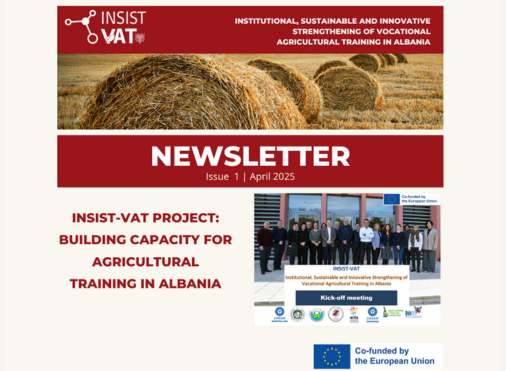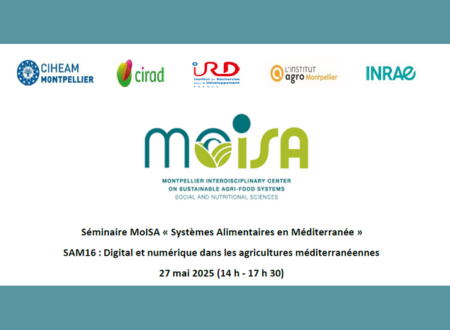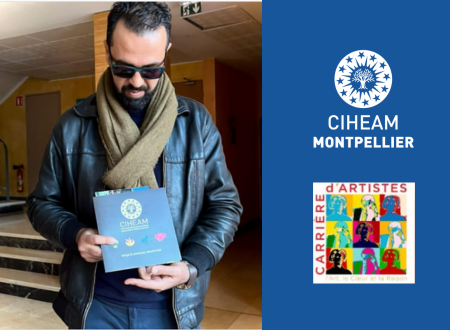Posté le 05 mai 2025
Archives : Agenda
Description.
ARADINA : présentation officielle aux nouveaux Ministres libanais en charge de l’Agriculture et de l’Environnement
Posté le 02 mai 2025
Mardi 22 avril 2025, le CIHEAM Montpellier, Fair Trade Lebanon et Action contre la Faim ont présenté avec l’Agence Française de Développement aux nouveaux ministres en charge de l’Agriculture, M. Nizar HANI, et de l’Environnement, Mme Tamara ELZEIN le projet « ARADINA ». Ce dernier vise à accompagner le Liban dans sa transition vers une agriculture plus durable et résiliente, et plus rémunératrice pour les familles agricoles.
Les deux ministres ont accueilli avec intérêt ce projet qui sera mené en étroite collaboration avec les deux ministères. C’est grâce à l’action conjuguée sur les systèmes et méthodes de production agricole (CIHEAM Montpellier, coordinateur du projet), la valorisation spécifique dans des filières équitables (Fair Trade Lebanon) et une sensibilisation des consommateurs et de la société (Action contre la Faim) que les objectifs seront atteints.
Le budget de 7M€ (fonds AFD) permettra de financer, outre des actions de formation, des activités devant renforcer l’accès à des nouveaux intrants et moyens collectifs de production et de transformation, ainsi que la commercialisation et la promotion des produits agricoles. Les principaux bénéficiaires du projet seront les agriculteurs, les coopératives, ainsi que les petites et moyennes entreprises. Le projet débutera dans les prochains mois, dans le Akkar et la Bekaa, pour une durée de 4 ans.
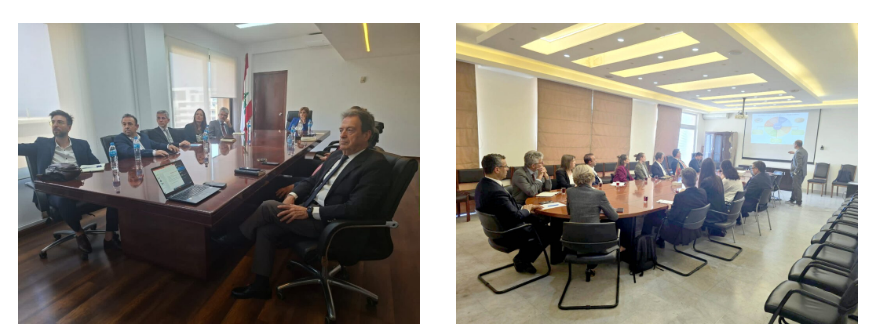
First High-level workshop & Steering Committee of the Erasmus+ project “INSIST-VAT”
Posted on May 2, 2025
Erasmus+ Capacity Building project “INSIST-VAT” to transform agricultural training and innovation in Albania
From 23 to 24 June 2025, a new EU funded initiative for a national agricultural vocational training centre will hold its first Steering Committee meeting at the Agricultural University of Tirana. On this occasion, a high-level workshop on “New challenges for agriculture – new knowledge needs” will be organised on 25 June.
For more information on the events, please contact the Agricultural University of Tirana (UBT):
Prof. Dr Fatmir Guri (fatmirguri@ubt.edu.al)
INSIST-VAT Coordination: Christophe Mur (mur@iamm.fr), CIHEAM-IAMM
And don’t miss the opportunity to catch up with our updates: follow INSIST-VAT on social media!
▪️ Facebook
▪️ X
▪️ LinkedIn
▪️ Youtube

INSIST-VAT is an Erasmus+ Capacity Building project in the field of Agricultural Vocational Training (CB-VET), co-funded by the European Union. Project Number: 101183189.
The 1st issue of the INSIST-VAT project’s newsletter is out!
Posted on May 2, 2025
We’re excited to share the latest news of the INSIST-VAT project and the major developments achieved for the past months :
And don’t miss the opportunity to catch up with our updates: follow INSIST-VAT on social media!
▪️ Facebook
▪️ X
▪️ LinkedIn
▪️ Youtube
✔️ INSIST-VAT is an Erasmus+ Capacity Building project in the field of Agricultural Vocational Training (CB-VET), co-funded by the European Union. Project Number: 101183189.

Webinaire : Séminaire MoISA « Systèmes Alimentaires en Méditerranée »
Posté le 28 avril 2025
SAM16 : Digital et numérique dans les agricultures méditerranéennes
Une résidence artistique inédite au CIHEAM Montpellier, organisation intergouvernementale au service de la science et de la culture
Posté le 11 avril 2025
Vendredi 04 avril 2025, une visioconférence riche en échanges a marqué la première étape du projet de résidence artistique de Mustapha TAABA au CIHEAM Montpellier. En présence de Thierry DUPEUBLE, directeur de l’Institut, de Nathalie DUNOIR (Fondatrice et gérante de la société De Concert), de Charlotte GRECET (enseignante en éducation socioculturelle au lycée Frédéric Bazille), de l’artiste lui-même et d’un groupe d’élèves du lycée agricole Frédéric Bazille. Un premier échange enthousiasmant avant le démarrage officiel prévu le 02 mai 2025.
Une première au sein d’une organisation intergouvernementale
C’est une grande première pour le CIHEAM Montpellier, organisation intergouvernementale engagée en Méditerranée sur les enjeux d’agriculture, d’alimentation, de ressources naturelles et de développement durable. En accueillant un artiste en résidence, l’Institut franchit une nouvelle étape : celle de faire dialoguer les savoirs scientifiques, l’expression artistique et les voix de la jeunesse.
Une résidence artistique, qu’est-ce que c’est ?
Une résidence artistique permet à un artiste de travailler sur un projet en lien avec un territoire, une thématique ou un public spécifique. Dans ce cas, Mustapha TAABA associera son expertise artistique à une réflexion collective sur « l’alimentation aujourd’hui et demain, dans les pays de la Méditerranée ». Pendant deux mois, il collaborera avec les élèves du lycée Frédéric Bazille ainsi qu’avec les doctorants et post-doctorants du CIHEAM Montpellier pour explorer les pratiques alimentaires, les mémoires culinaires et les évolutions sociétales dans les régions de la Méditerranée.
Une rencontre pleine de sens
Lors de cette première rencontre, le directeur Thierry DUPEUBLE a posé le cadre du projet et rappelé les valeurs portées par le CIHEAM Montpellier : dialogue interculturel, durabilité, ancrage méditerranéen. Mustapha TAABA a ensuite présenté son parcours, son style artistique, ses techniques de peinture et ses inspirations. Les élèves, particulièrement enthousiastes, ont échangé avec l’artiste, intéressés par l’opportunité de travailler sur un thème aussi essentiel et universel que l’alimentation.
Cette résidence, première du genre au sein du CIHEAM Montpellier, marque une volonté affirmée de faire dialoguer culture, science et jeunesse autour des grands enjeux de demain en Méditerranée. Organisée en marge de la XIᵉ conférence PARMENIDES, qui portera justement sur le thème « Se nourrir en Méditerranée », elle vient enrichir les réflexions portées par les scientifiques et les experts en y ajoutant une dimension sensible, portée par la jeunesse et l’expression artistique.
Prochaines étapes
- Le 02 mai 2025 : Lancement officiel de la résidence au CIHEAM Montpellier
- Les 16, 23 et 30 mai : Ateliers de co-création au lycée Frédéric Bazille
- Le 19 juin 2025 : Restitution lors de la XIième conférence PARMENIDES
- Le 20 juin 2025 : Exposition au Consulat d’Algérie à Montpellier
Suivez l’évolution du projet sur nos réseaux pour découvrir les coulisses de cette aventure collective et inspirante !


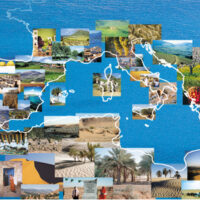 L'institut de MontpellierNotre vision est celle d’un bassin méditerranéen au sein duquel l’esprit de coopération prévaut.
L'institut de MontpellierNotre vision est celle d’un bassin méditerranéen au sein duquel l’esprit de coopération prévaut.
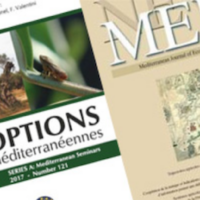 Publications du CIHEAMNos publications et outils de communication visent à faciliter les processus de prise de décision pour les acteurs politiques, économiques et agricoles de la région méditerranéenne.
Publications du CIHEAMNos publications et outils de communication visent à faciliter les processus de prise de décision pour les acteurs politiques, économiques et agricoles de la région méditerranéenne. Actualités et événements
Actualités et événements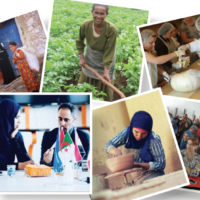 Revue de presse (Scoop.it)
Revue de presse (Scoop.it) Programmes de MasterLe CIHEAM Montpellier c’est à la fois un accompagnement personnalisé et une ouverture à l’international.
Programmes de MasterLe CIHEAM Montpellier c’est à la fois un accompagnement personnalisé et une ouverture à l’international.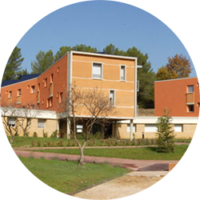 Campus & vie étudianteDepuis 1962 nous accueillons près de 95% d’étudiants internationaux.
Campus & vie étudianteDepuis 1962 nous accueillons près de 95% d’étudiants internationaux.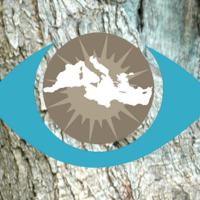 Portail documentaireUn Centre de documentation unique sur la Méditerranée,
investi dans le partage des connaissances.
Portail documentaireUn Centre de documentation unique sur la Méditerranée,
investi dans le partage des connaissances. Production scientifiqueLa politique des publications du CIHEAM est depuis longtemps engagée dans le mouvement du libre accès et du partage des connaissances.
Production scientifiqueLa politique des publications du CIHEAM est depuis longtemps engagée dans le mouvement du libre accès et du partage des connaissances. Devenir partenairesTisser des partenariats fait partie de l’ADN du CIHEAM Montpellier... Rejoignez ses projets ou ses formations, soutenez ses actions.
Devenir partenairesTisser des partenariats fait partie de l’ADN du CIHEAM Montpellier... Rejoignez ses projets ou ses formations, soutenez ses actions.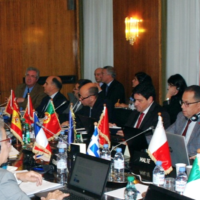 Réunions ministériellesA travers les Ministérielles , le CIHEAM contribue à la construction d'un dialogue entre les pays méditerranéens autour des questions relatives à l'agriculture et au monde rural.
Réunions ministériellesA travers les Ministérielles , le CIHEAM contribue à la construction d'un dialogue entre les pays méditerranéens autour des questions relatives à l'agriculture et au monde rural.